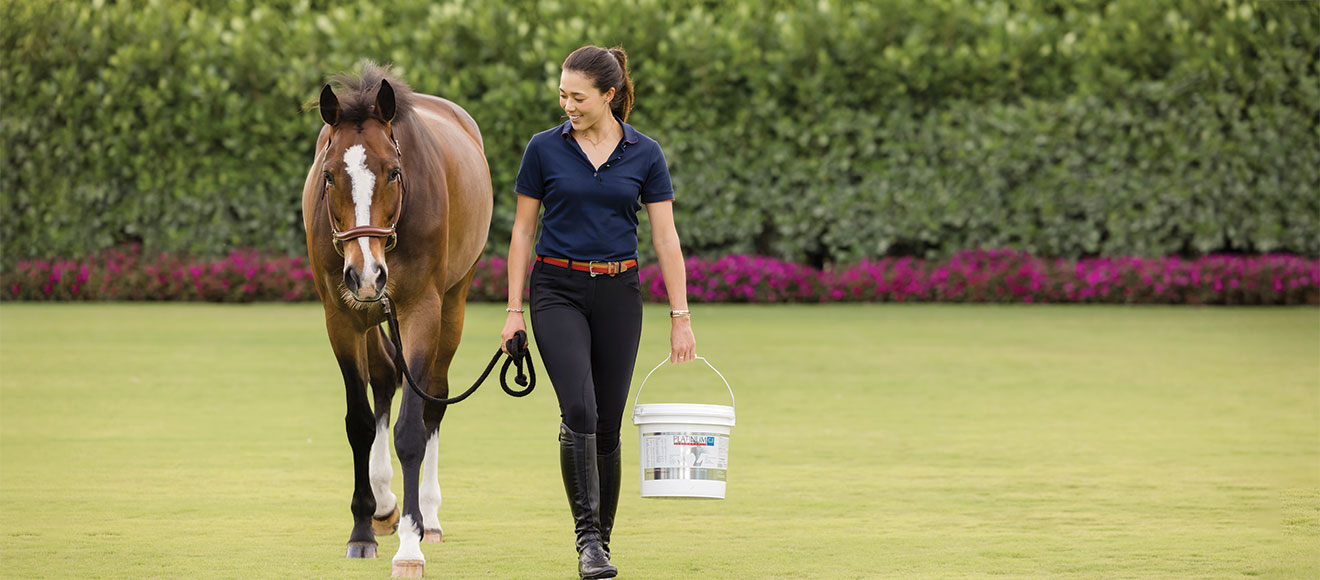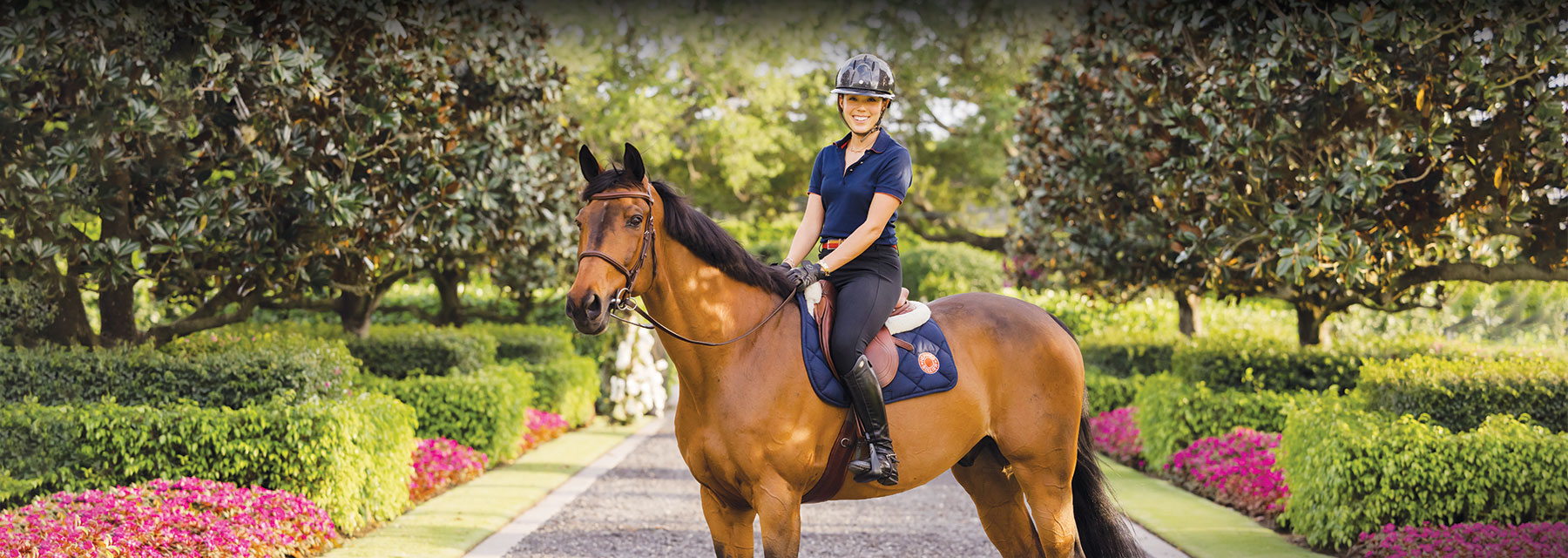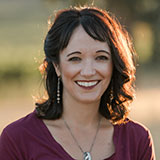International Grand Prix Hero Karen Polle Shares How She Preps for Competition and Cares for Her Horse Post-Performance
No matter the sport, there’s no better feeling than coming in first. “It’s really hard to get all the stars to line up perfectly, but when it does, it’s the best feeling in the world,” explains Karen Polle, international Grand Prix show jumper extraordinaire. “There’s an added complexity with horses; you have a 1,200-pound animal who has their own opinions and who you can’t communicate with using the spoken language.” This is what makes competing on horseback so much more challenging and why equestrians everywhere always want to know the secrets behind the top riders and their horses. No matter the discipline, there’s one thing professional riders all have in common: a love of horses.
At 32 years old and one of the top ranked in the world, this Japanese American rider is no newcomer to being in the spotlight. In 2018, she was one of the youngest riders to compete at the FEI World Equestrian Games and has continued being a leading show jumper ever since. For her, consistency is key to reaching the winner’s circle. “My general rule is to try not to change too much,” she says. “I think that my horses and I are most successful when we go in with a solid program and routine that we stick to as much as possible, and we treat the competition like any other day, nothing hugely special.”
Polle, who competes internationally for Japan, has been working hard to improve her mental game, so she can manage her nerves the day of the show: “I’ve worked with a sports psychologist for years, and I’d say the main thing we’ve worked on is managing my focus, which is interrelated to managing my nerves.” By shifting her concentration to her horse and what she sees and feels in the moment, she doesn’t have the space to get stressed or anxious. “If I start to feel nervous, I’ll just try to bring my attention back to how my horse is feeling or what warm-up jump is right in front of me,” she says. “That helps take me out of the nervous world I might be getting into and redirects my attention in a different place.” Once in the ring, Polle admits that there’s too much going on for her mind to stray — the challenge is staying calm and not getting distracted before entering the arena.
“When I was 9 years old at horse summer camp, I learned that you always take care of your horses first before you do anything for yourself. I really try to live by that motto every single day.”
— Karen Polle, International Grand Prix Rider
Taking A Natural Approach
Like any accomplished rider, Polle works hard to keep her horses physically fit and ready for competition. “There’s definitely a training piece, which is both the fitness and conditioning of the horses, but I also work on specific elements of the flat work, including communication, responsiveness and even jumping exercises,” she explains. Beyond typical exercise and practice, she also likes to ensure her horses are mentally ready to compete. “I try to manage the mental side of the horses to make sure they feel fresh, happy and not burnt out,” she explains. “They have to enjoy jumping and competing in order to win.” This includes caring for the horses after they work and ensuring they get all the attention needed from their veterinarian and farrier.
While Polle executes a detailed training and conditioning program, she also puts heavy emphasis on letting her horses live a more natural lifestyle. She explains, “Turnout for my horses is important because it’s time for them to decompress and be horses both mentally and physically.” Since horses evolved in the wild where they were moving around all day and eating little bits at a time, she strongly believes they need the room and the pasture to do this at home too. “For their overall health, circulation and digestion, it’s important for them to be outside grazing as much as possible,” she says. Along with feeding a natural diet, she adds in supplements to support her high performing athletes. “Every horse that’s in my barn is on Platinum Performance® Equine and Platinum Joint Care + HA,” she states. “I also use Platinum Hoof Support and Healthy Weight oil.”

“Every horse that’s in my barn is on Platinum Performance® Equine and Platinum Joint Care + HA,” International Grand Prix Rider Karen Polle states. “I also use Platinum Hoof Support and Healthy Weight oil.” She’s been a Platinum client since 2014.
Ringside
While the anxiety of reaching the top can make competitors second guess their routines, Polle chooses to stay on track with what’s been working in practice and keep things simple. “I think the natural tendency is to do all these extra special things because you want to make sure you’re peaking for a specific moment, but in general, I think it’s best to stick to the basics that have served you well day to day,” she explains. “I usually keep my warmup pretty simple. I try not to jump too much because I want to do just enough that my horse is warmed up and ready but not so much that they start to get tired or lose some of the power that I want to preserve for the ring.” Naturally, her routine will vary depending on the horse and what she’s feeling that day. For example, she may need to do a little bit extra if it’s really cold outside or her mount is frisky. By concentrating on these types of variables she has learned not to trouble her mind with worries about winning.
The last part of Polle’s warm-up routine is to review the layout of the course. “Usually when I’m walking from the warmup area to the ring, I’ll be going through the course one last time and thinking about what I want to make sure I remember to do,” says Polle. At this point in her routine she tries to step back and remember she’s doing this for fun. “I try to take a deep breath, smile and enjoy the moment competing because that’s my favorite part of the sport,” she says. Luckily, she’s also able to lean into her equine counterpart when the pressure mounts. “Celine definitely knows when it’s important, but in a good way,” she says of her mare, a German Warmblood. “She rises to the occasion and jumps extra well when it’s really important. I think that's what makes her such a great horse.”
Walking Out
Due to the increased adrenaline after competition, Polle likes to trot her horses out following her runs. She says, “I’ll go back to the warm-up ring and on a loose rein, trot and let them kind of stretch and cool down in more of a gentle, slow way, rather than an abrupt stop where they’re just suddenly standing after putting in such a big effort.” Once settled down, Polle will continue walking until her mount’s recovery is complete. “I think walking is important for bringing the heart rate and breathing rate down but also to help their muscles stay loose and keep circulation going,” she says. “Also mentally, I think it’s nice for horses to just take some deep breaths and walk to decompress after competing.”

